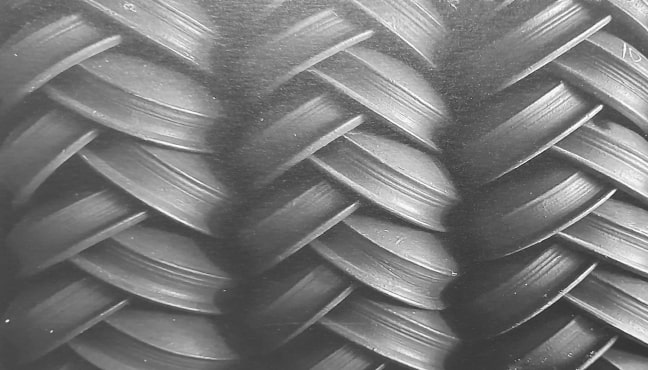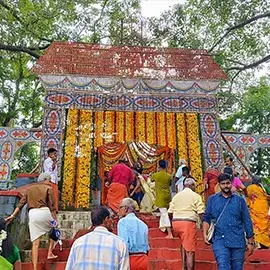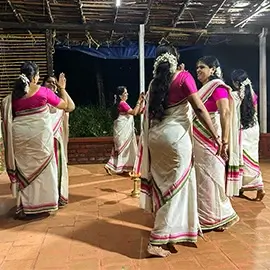Arts and Culture
Thiruvilwamala, nestled amidst the Northern Mountain Range of Thrissur in Kerala, is a quaint hilly area. Positioned along the serene banks of River Bharathapuzha, Thiruvilwamala boasts several renowned landmarks including the revered Sri Vilwadrinath Temple, a cluster of Five Shiva Temples, and the Parakkottukavu Bhagavathy Temple, making it aptly described as a "Temple Town".Thiruvilwamala is enveloped by lush greenery, sprawling farmlands, and meandering rivers, creating a picturesque landscape.
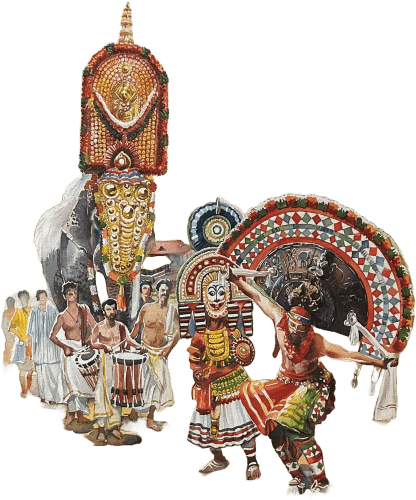
Poothanthira
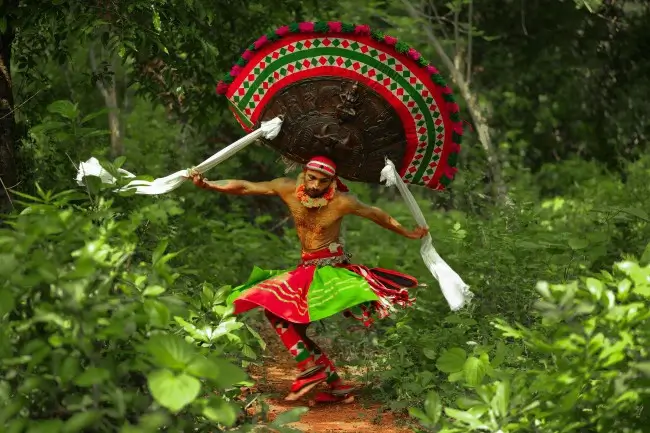
Poothan and Thira is a mesmerizing ritualistic folk art deeply intertwined with the cultural fabric of Kerala's Valluvanad region, particularly in the Palakkad and Thrissur districts. This captivating performance, held once or twice a year in villages or towns, serves as a powerful cleansing ritual aimed at warding off evil spirits. Whether it's in the serene backdrop of a village or the grandeur of a temple, Poothan and Thira enthrall spectators with their dynamic dances,accompanied by the rhythmic beats of drums and horns.
The performers, predominantly from the Mannan Hindu sub-caste, don elaborate costumes and masks, with Poothan representing the lieutenant of Kali, adorned in vibrant hues and gold trinkets, while Thira embodies the fierce goddess Kali herself, crowned with symbols of divine power. The epic Malayalam poem "Poothappattu" by Edasseri Govindan Nair immortalizes the essence of this tradition, celebrating its rich heritage and significance in the cultural landscape of Kerala
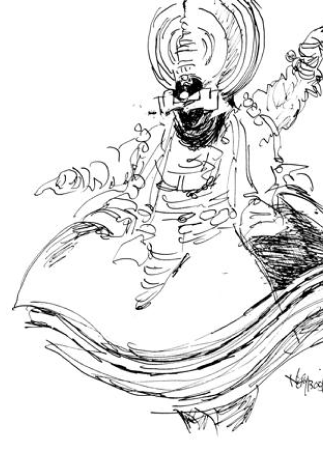
Ancient Shadow Puppetry

Ancient Tholpava Koothu at Thiruvilwamala, Kerala, embodies a sacred tradition steeped in cultural heritage and religious devotion. Passed down through generations by the Pulavars, a family revered for their mastery of the art form, Tholpava Koothu is a mesmerizing blend of shadow puppetry, storytelling, and ritualistic performance. Held in the Koothu Madam, a specially constructed theater near the Bhagavati temple, these performances unfold from January to May, enveloping spectators in the timeless epic narrative of the Kamba Ramayana. The dialectical fusion of Malayalam and Tamil adds depth to the tales, capturing the essence of Kerala's cultural ethos and spiritual fervor.

At the helm of this ancient art form stands K. K. Ramachandra Pulavar, a scion of the Pulavar lineage and a custodian of Tholpava Koothu's legacy. From a young age, Ramachandra Pulavar honed his skills under the guidance of his father, K.L. Krishnankutty Pulavar, himself a revered figure in the world of puppetry. Through their performances, the Pulavars not only entertain but also uphold a tradition that serves as a bridge between past and present, connecting communities with their roots and preserving the essence of Kerala's cultural identity. Tholpava Koothu at Thiruvilwamala stands as a testament to the enduring power of art to transcend time and inspire generations with its timeless tales and spiritual significance.

Pottery Making

Traditional pottery making in Kerala is an ancient art deeply ingrained in the state's heritage. Artisans, often from specific pottery villages, skillfully mold clay sourced from riverbeds into various forms using hand-building techniques or a potter's wheel. Each piece reflects the unique style and technique of its village, adorned with intricate designs inspired by local traditions. The firing process in traditional kilns transforms raw clay into durable pots, and vessels showcasing the artisans' craftsmanship.
Thiruvilwamala Village in Kerala is renowned for its traditional pottery craftsmanship. Generations of artisans have perfected their skills, shaping clay sourced from nearby riverbeds into intricate pieces of art. Visitors can experience the rich cultural heritage of the village by witnessing the pottery-making process firsthand and even trying their hand at it.
